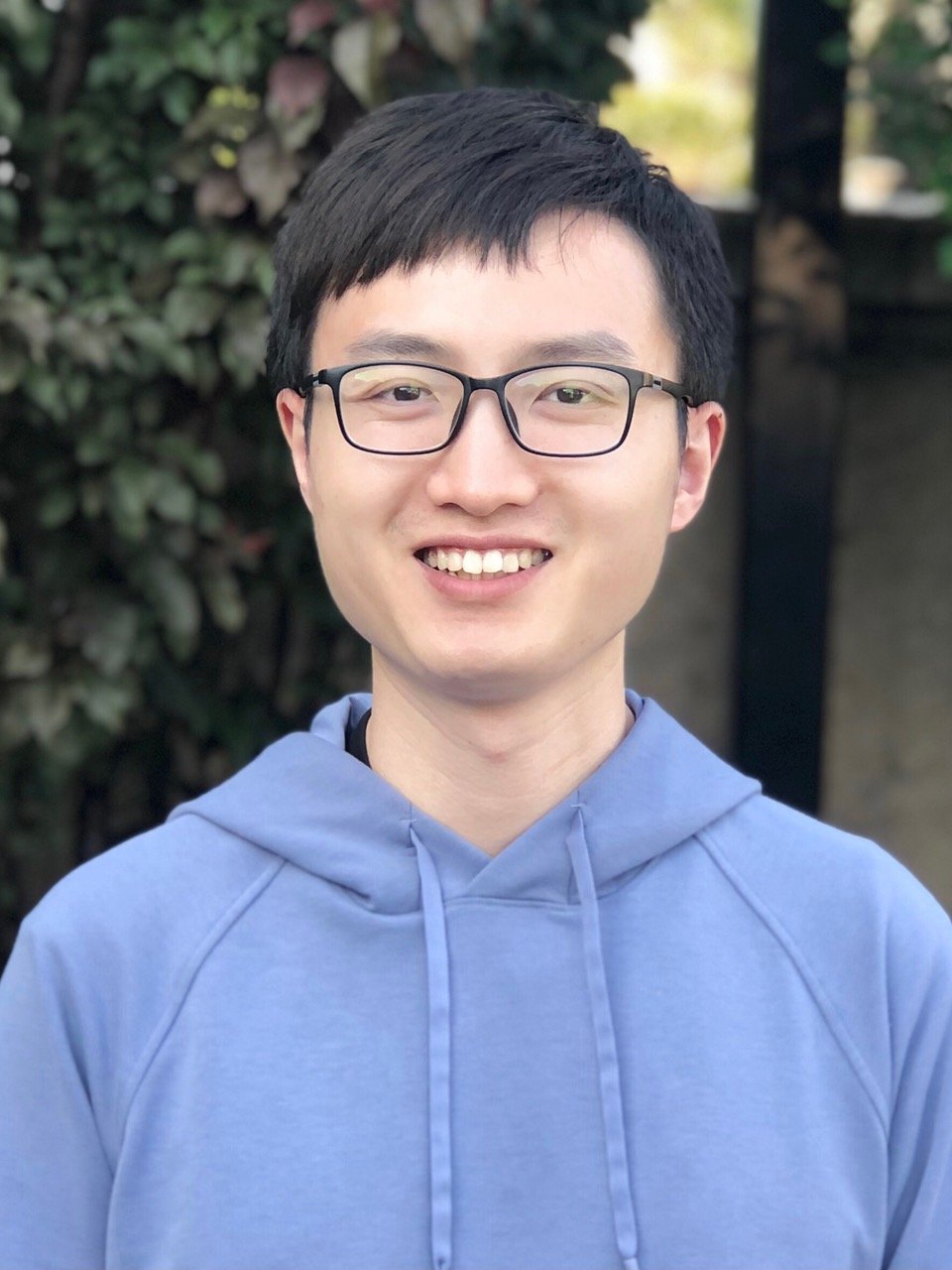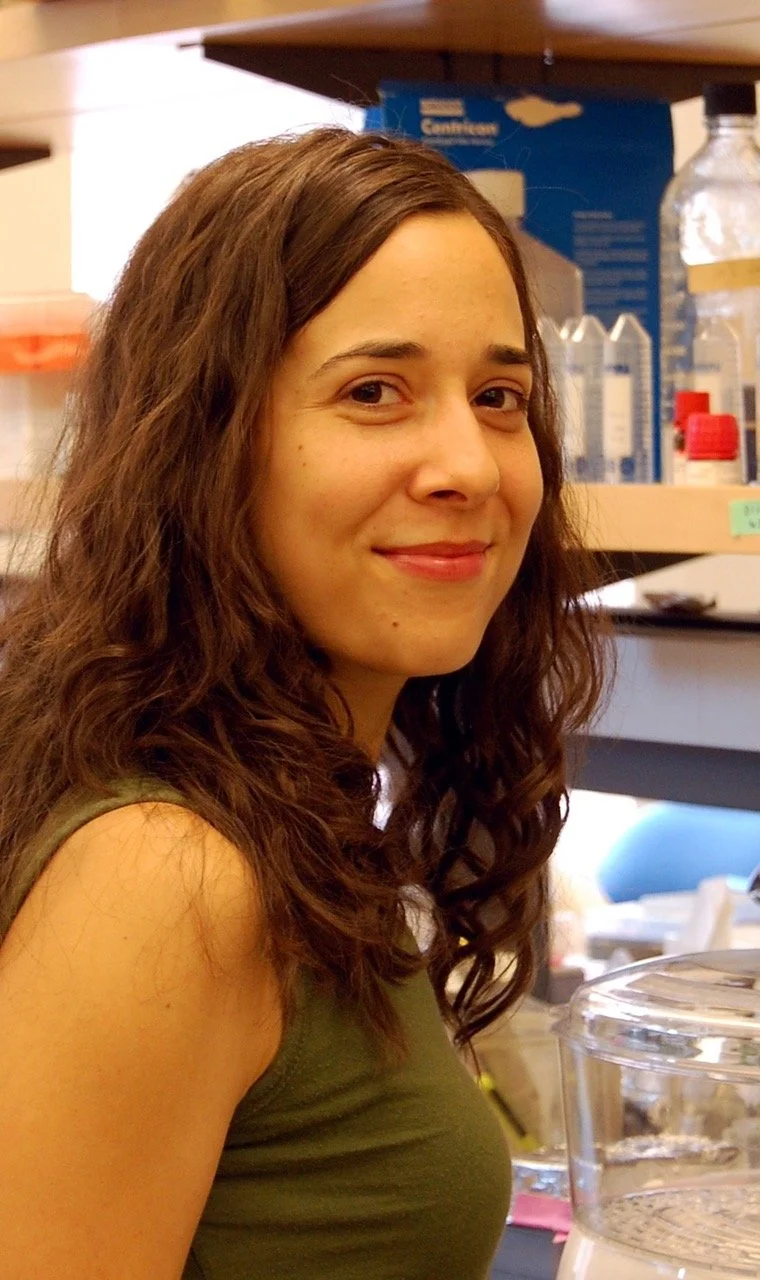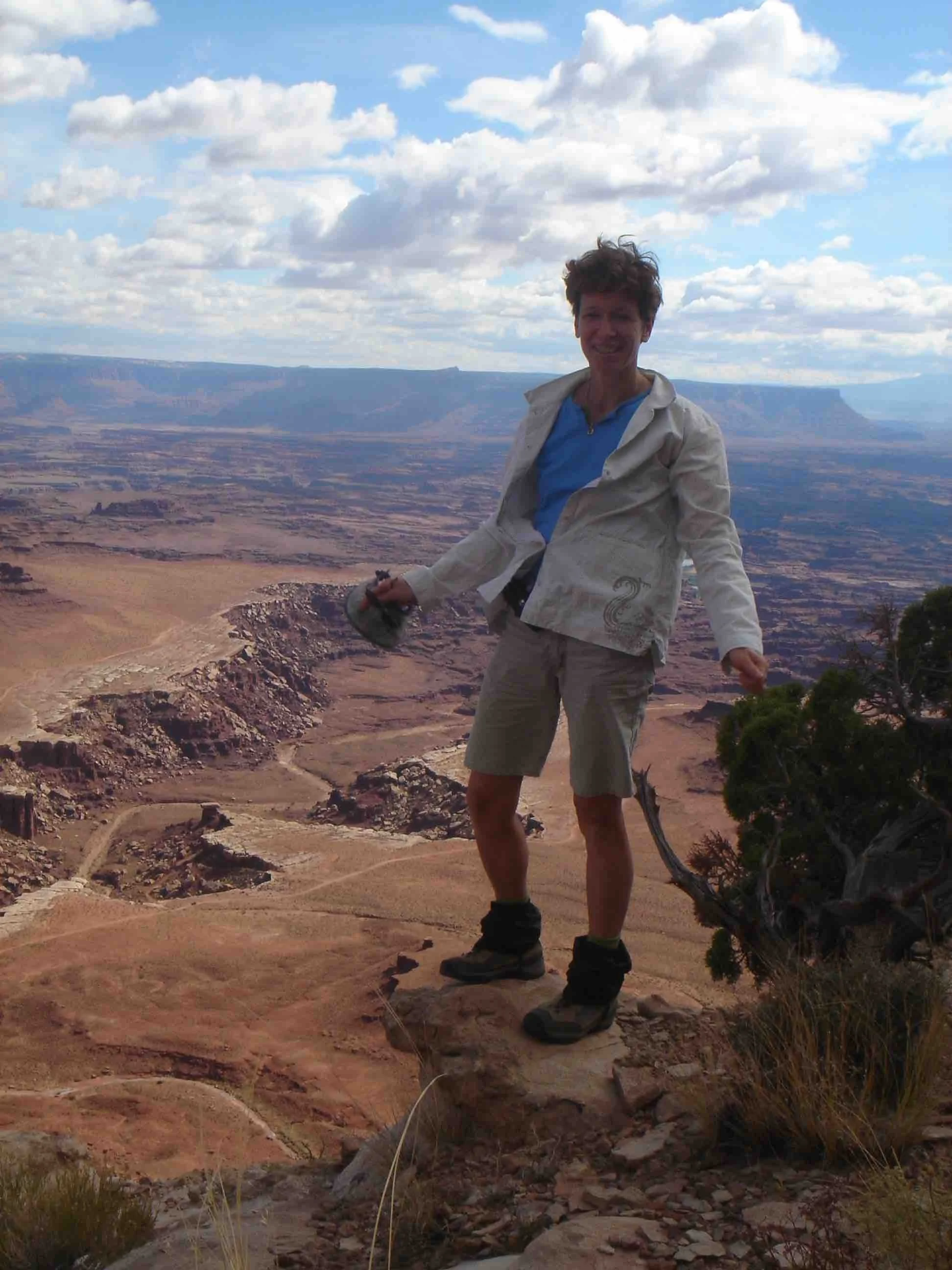
Uta von Schwedler Prize for Retrovirology
A $1250 cash prize in honor of Uta von Schwedler was established in 2012 to be awarded annually with the purpose of honoring the accomplishments of a distinguished graduate student as he or she completes a dissertation in retrovirology.
The cash prize is awarded directly to the student based upon their scientific accomplishments and promise. Applicants will generally be senior graduate students. New graduates are also eligible provided their PhD completion date is within six months of the Cold Spring Harbor Retroviruses Meeting (after December 1, 2023).
About Uta
Uta's Scientific Contributions
Uta began her career in retrovirology research in Roland Friedrich's laboratory at the University of Giessen, where she defined a signal sequence in the envelope protein of spleen focus-forming virus and received her Diplome (Masters) degree in 1987. As a PhD student in Matthias Wabl's laboratory at UCSF (1987-90), she showed that a circular DNA product is produced during the process of immunoglobulin heavy chain class switching, thereby demonstrating that the immunoglobulin heavy chain class switch occurs through a DNA looping-out and deletion mechanism (von Schwedler et al (1990) Nature).
Uta was a postdoctoral fellow of the UC AIDS Foundation in Didier Trono's laboratory at the Salk Institute (1991-94), where she showed that expression of the HIV-1 Vif protein in virus producing cells overcomes a subsequent early-stage block in the infection of restricted target cells. (von Schwedler (1993) J Virol).
She then worked as a senior research associate in Wes Sundquist's laboratory at the University of Utah (1996-2008), where she made a series of important contributions to our understanding of HIV-1 assembly and budding. For example, her paper that mapped the host protein interaction network required for HIV budding was selected by the HIV Vaccine electronic (e) resource (HIVe) as one of the most influential scientific papers published in the first 30 years of HIV research. In the final three years of her life, she worked with Ila Singh and with Joshua Schiffman at the University of Utah.
This EM image was taken by Uta and shows virus particles budding from the cell. In this particular case, the viruses are inhibited from budding by mutations in the ESCRT system.
Uta was especially fond of the Cold Spring Harbor Meeting on Retroviruses, both owing to her love of science, but also for the friends she connected with year after year. She attended sixteen meetings during her career. She was always active, whether attending meeting lectures, socializing with old and new friends, discussing science at poster sessions, running on the Cold Spring Harbor campus, or swimming in the ocean harbor. Uta also had deep respect and talent for basic research and loved to train and mentor young scientists. She was loved by many within this community, and this prize is meant to remember and honor her professional contributions and to help foster these characteristics in the next generation of retrovirologists.
How to Apply
DEADLINE: March 11, 2024
(In the event the meeting abstract deadline is extended, the application for the Uta Von Schwedler Prize will also be extended to one week beyond the new meeting abstract deadline)
APPLICATIONS MUST INCLUDE
Meeting abstract (format specified for CSHL Retroviruses Meeting)
Curriculum vitae
Summary of thesis research (one page or less)
Copy of candidate's most significant publication(s)
Please prepare application as a single PDF, ordered as listed above. The candidate is also responsible for arranging two electronic letters of reference, separate from the application. Application packet, letters of support, and questions regarding this application should be emailed directly to Jack Skalicky (skalicky@biochem.utah.edu).
APPLICATION REVIEW COMMITTEE
Wes Sundquist, Chair (University of Utah)
Thomas Hope (Northwestern University)
Hans-Georg Kräusslich (University of Heidelberg)
Walther Mothes (Yale University)
Vicente Planelles (University of Utah)
Jack Skalicky (University of Utah)
Alice P. Telesnitsky (University of Michigan)
Didier Trono (École Polytechnique Fedéralé de Laussanne)
Awardees
-

Junjie Xu
University of Utah
2023
PNMA2 forms non-enveloped virus-like capsids that trigger paraneoplastic neurological syndrome
-

Jack Collora
Yale University
2022
Interrogation of HIV-1 driven transcriptomic and epigenomic changes in infected and uninfected blood cells
-

Lara Rheinemann
University of Utah
2021
Host-Virus-Interactions during ESCRT-dependent Virus Budding
-

Jérémie Prévost
University of Montreal
2020
Impact of HIV-1 Envelope Conformation on Humoral Responses
-

Jiayi Wang
University of Minnesota
2019
The Dynamic Interplay between Lentiviral Vif and Human APOBEC3 Proteins
-

Matthew Takata
Rockefeller University
2018
Non-coding RNA Features Critical to the Replication of HIV-1
-

Jordan Becker
University of Wisconsin
2017
Trans-cytoplasmic express: Observing HIV-1 genomic RNA trafficking, interactions in the cytoplasm, and effects on virion assembly
-

Anna Gres
University of Missouri
2016
Structural Basis of Stability of the Mature HIV-1 Capsid Core
-

Kellie Ann Jurado
Harvard University
2015
Allosteric integrase inhibitors reveal a role for integrase during HIV-1 maturation
-

Suzannah Rinh
Rockefeller University
2014
Causes and Consequences of Genetic Robustness and Fragility in HIV-1 Proteins
-

Judd Hultquist
University of Minnesota
2013
HIV-1 Vif Requires Cellular CBFβ to Degrade the Antiviral APOBEC3 Proteins and Facilitate Viral Replication
-

Oya Cingöz
Tufts University
2012
Recombinant Origin of the Retrovirus XMRV: Discovery, Analysis and Distribution of Two Ancestral Viruses
Donate
Individual and corporate donations to the Uta von Schwedler Prize endowment fund are welcome.
Cold Spring Harbor Laboratory is a 501(c)3 not-for-profit organization and thus all donations are tax-deductable.
To donate by check
Please make checks payable to "Cold Spring Harbor Laboratory", clearly marked "Uta von Schwedler Fund" and send to:
Jill Stone
Nichols Building
Cold Spring Harbor Laboratory
1 Bungtown Road
Cold Spring Harbor, NY 11724
Please contact Ms. Stone directly if you have any additional questions.
516-367-6859
Email: stone@cshl.edu
To donate by credit card
Please visit the CSH website and specify that your gift is in honor of Uta von Schwedler.
Thanks to our donors
The Uta von Schwedler Prize is an effort of the retrovirology community, the von Schwedler family, and friends of Uta. The prize is funded by individual contributions, including donations from those listed below. We have raised funds to ensure the prize will be awarded into the near future, however, additional contributions are always welcome.
Heidi McIntosh
Vicente and Audrey Planelles
Monica Roth
Ruth Sagenschneider
Heidi Schubert
Janet Shaw
Jack Skalicky
Paul W. Spearman
Wesley and Nola Sundquist
Almut von Schwedler
Anna von Schwedler
Holle von Schwedler
Simon von Schwedler
Sophie von Schwedler
Alice P. Telesnitsky
Christopher R. Aiken
Shannon Ashby
Alberto Bosque
Paula Cannon
Chris Fillmore
Roland Friedrich
Adam Frost
Doug Grossman
G. Wesley Hatfield and Suzanne Beth Sandmeyer
Christopher Hill and Jacqui Wittmeyer
Brian Kelly
Erik Kish-Trier
Janet Lindsley
Jane MacFarlane
Navid Madani
John McCullough
We acknowledge the efforts of the Prize Committee in the selection process, the Cold Spring Harbor Laboratory in administering the endowment fund, and the many private individuals who have provided generous support.
Contact
Application Questions
Please direct any questions regarding the application to Jack Skalicky.
Donations
Information about how to donate can be found here.
Please contact Jill Stone directly if you have any additional questions.
Webmaster
Please report any errors or needed updates to Kate Willden.








